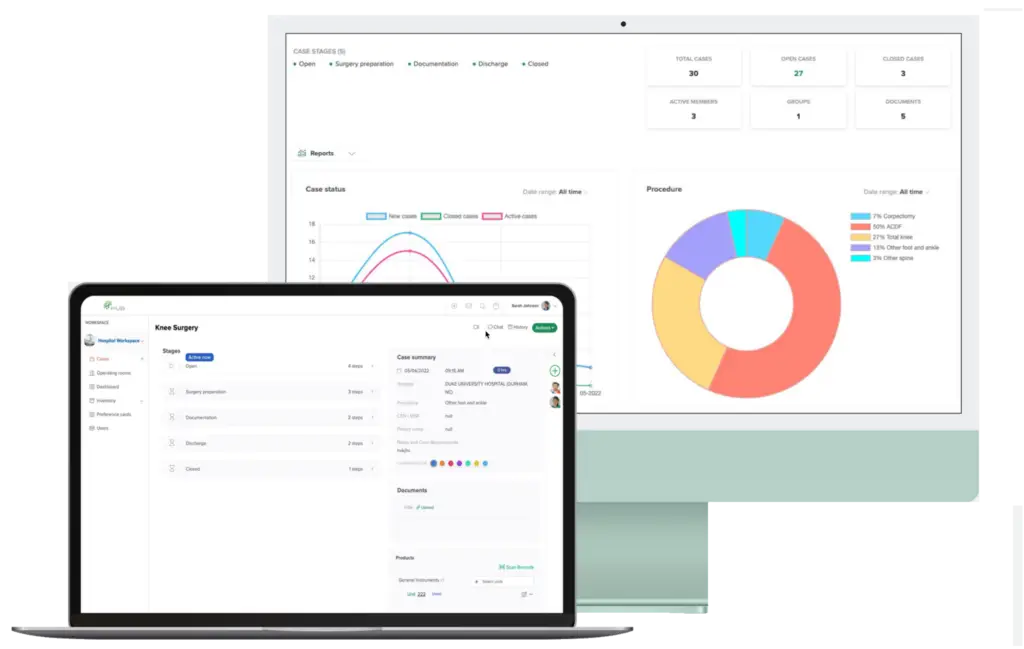As a medical practitioner, you know that time is of the essence. Every minute spent on administrative tasks is a minute taken away from patient care. That’s why it’s crucial to have an efficient workflow in place. In this article, we’ll discuss the importance of workflow planning for your medical practice and provide tips on how to analyze and optimize your workflow.
The Importance of Workflow Planning

A well-planned workflow can save your medical practice time and money. It can also improve patient satisfaction and outcomes. By having a clear and organized workflow, you can reduce the risk of errors and delays, leading to a more efficient and effective practice. Additionally, a streamlined workflow can help you and your staff manage your workload more effectively, reducing stress and burnout.
Workflow Analysis
Before you can optimize your workflow, you need to analyze it. This involves mapping out all the steps involved in your current workflow and identifying any bottlenecks or inefficiencies. You can do this by observing your staff as they go through their daily tasks, or by conducting surveys and interviews to gather feedback from your team. It’s also helpful to track the time it takes to complete each step in the workflow.
Identifying Bottlenecks
Bottlenecks are points in your workflow where tasks get delayed or stuck, causing a backlog of work. These bottlenecks can be caused by a variety of factors, such as outdated technology, inefficient processes, or lack of communication. By identifying these bottlenecks, you can address them and improve the overall flow of your workflow.
Streamlining Processes
Once you have identified bottlenecks, you can start streamlining your processes. This may involve implementing new technology, updating outdated procedures, or improving communication between staff members. It’s important to involve your team in this process, as they are the ones who are most familiar with the day-to-day tasks and can provide valuable insights and suggestions.
Workflow Optimization
After analyzing and streamlining your workflow, it’s time to optimize it. This involves implementing the changes and improvements you have identified in the previous steps. It’s important to communicate these changes to your staff and provide training if necessary. You may also want to monitor the new workflow to ensure it is functioning as intended and make any necessary adjustments.
Automation
One way to optimize your workflow is by automating certain tasks. This can include appointment scheduling, patient reminders, and billing processes. By automating these tasks, you can save time and reduce the risk of errors. There are many software solutions available specifically for medical practices that can help with automation.
Regular Review
It’s important to regularly review and update your workflow to ensure it remains efficient and effective. As your practice grows and technology advances, there may be new opportunities for improvement. By regularly reviewing your workflow, you can continue to provide the best possible care for your patients while also maximizing your time and resources.
In conclusion, having a well-planned and optimized workflow is crucial for the success of your medical practice. By following these tips and regularly reviewing and updating your workflow, you can improve efficiency, reduce stress, and provide the best possible care for your patients. Have you implemented any of these strategies in your practice? Let us know in the comments.

How HUB Healthcare Can Help
HUB Healthcare offers a comprehensive solution designed to enhance communication, streamline care coordination, and improve overall workflow efficiency in healthcare settings. Our platform includes features such as medical case management software, healthcare document management, and healthcare analytics to ensure that all aspects of patient care are optimized. By leveraging HUB Healthcare’s robust tools, organizations can reduce workflow bottlenecks, automate repetitive tasks, and facilitate better collaboration among healthcare providers. This not only improves work quality but also enhances patient outcomes, making HUB Healthcare an essential partner in achieving healthcare excellence.





